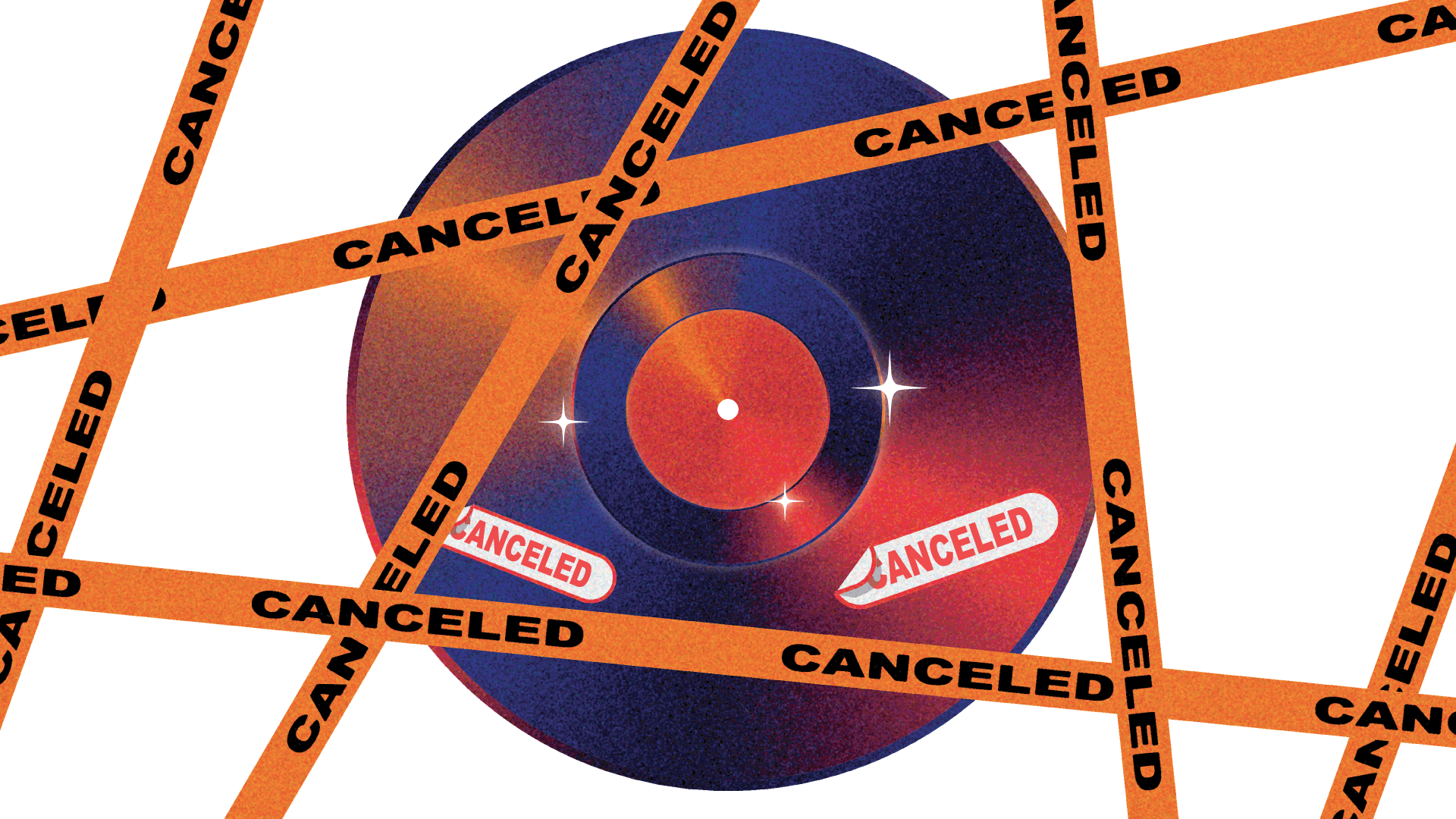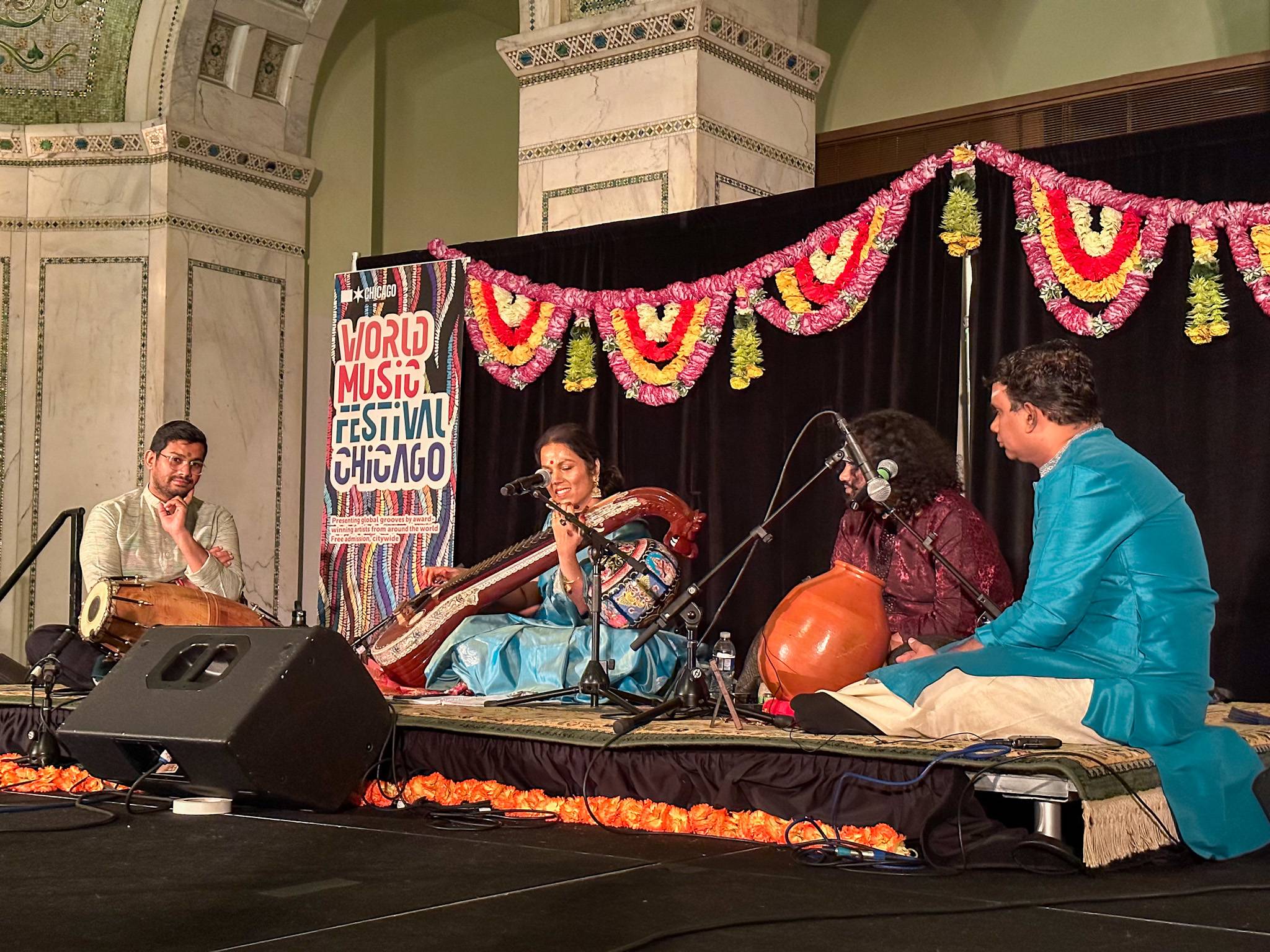Mourning and yearning, memorial gestures at the Rotunda Cultural Center
Politeness and patriotic pressure are driving Americans into a dangerous emotional void, according to New York-based artist Ernesto Pujol. He sees this in day-to-day interactions, such as in the standard response to the greeting, “How are you?”
“You can’t say, ‘I’m really sad,’” Pujol said while sitting in front of the Columbus building on the SAIC campus. “Because that would stop America. If suddenly half the nation said to the other half, ‘I’m really sad,’ you couldn’t just walk away with your coffee and donut.” But walking away appears to be what the country is doing. Despite the death of nearly 4,000 Americans since the invasion of Iraq four years ago, questioning the Bush administration’s motives and calling the involvement a “war” has only recently been accepted in the mainstream.
“The pressure to be patriotic overrides the pressure to be devastated, disconsolate and angry,” Pujol said. “The families [of soldiers who died in the war] are so silent and so alone because it’s a volunteer army.” Acknowledging a need to mourn suggests that something isn’t right, and it challenges the status quo, according to Pujol. And Americans are afraid to do that.
Mourning, that typically private emotional act, will go public in Pujol’s performance Memorial Gestures: Mourning and Yearning in the Rotunda at the Chicago Cultural Center at 10 a.m. on October 9th. Pujol and five other performing artists will embody gestures of mourning in a 12-hour performance. Trevor Martin, Director of Exhibitions in the Department of Exhibitions and Events/Exhibition Studies, and alum Sara Schnadt collaborated on the piece. Other SAIC students are also involved.
“He just has this really open process,” Martin said of working with Pujol. “He knows his practice. He knows his work. He’s really open and generous about making his thought process transparent.”
Pujol’s recent pieces explore the search for transcendence. But despite his Catholic upbringing in Puerto Rico (He was born in Havana, Cuba in 1957) and his four years as a monk, Pujol winces to hear his work called spiritual, citing the word’s anti-intellectual inference. “I am interested in how, regardless of your culture, race, religion, everyone is interested in transcendence,” he said. “My work is interested in how the human being is framed by different ideologies and how sometimes both the body and the person’s self are consumed by that.”
Pujol uses the word “containment” to describe the gestures in Mourning and Yearning, emphasizing the performance will be neither sentimental nor melodramatic. Pain and suffering, after all, are difficult to articulate, he said, adding that he’s not interested in high drama but in expressing the complexity of sadness. Ultimately, the performance cannot be consumed, Pujol said, in part because of its duration. He hopes the silence and beauty in the piece moves the audience to reflect. “It’s slow, and so once you get beyond the first impression, then you realize that something is meant to happen inside of you.”
The performance will make specific use of the Grand Army of the Republic Rotunda inside the Cultural Center. Actors will occupy six squares on the chessboard-like floor, and the lights from the ceiling and floor will frame the piece. “I’m someone who responds very much to places, landscapes,” Pujol said. Indeed, his most recent Boston-based work also drew from its surroundings — his work The Water Cycle centered on several walks along the Boston Harbor and nearby islands for the Institute of Contemporary Art, Boston. In this work Pujol was “The Water Carrier,” a silent, thoughtful character who filled glasses from each destination he visited.
Carole Anne Meehan, who curated the Boston performance, said there had been magical moments witnessed by audience members who walked with Pujol. “The work rewards quite well the audience member who commits the time and physical energy.”
Pujol hopes the audience will receive a specific type of reward in viewing his Chicago piece. He intends to make a space where feeling really sad is finally accepted.
Ernesto Pujol, Memorial Gestures: Mourning and Yearning at the Rotonda, Chicago Cultural Center, G.A.R. Rotunda, 78 E Washington Street, 10 a.m. to 10 p.m. on Oct. 9th. This performance is followed by a discussion with Ernesto Pujol organized by the Betty Rymer Gallery, 4:30 p.m. Oct. 10, Room 110 (lower level), 280 S. Columbus Drive.





















